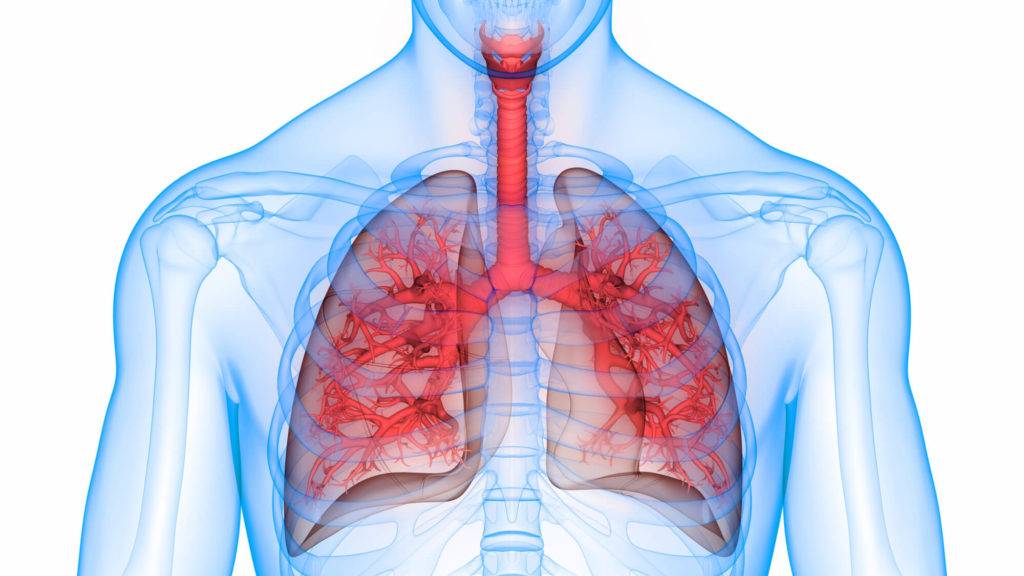Cystic Fibrosis: Symptoms and Emergency Treatment

Cystic fibrosis (CF) is an inherited disorder affecting nearly 40,000 children and adults in the US. Around 1,000 new cases are diagnosed annually, many through newborn screening that takes place before an infant goes home.
CF affects cells that produce mucus, sweat, and digestive juices. The normally thin, slippery mucus that should provide lubrication and other functions becomes thick and sticky, plugging ducts, tubes, and passageways, especially in the lungs and pancreas.
Early diagnosis is vital for managing this aggressive condition. There is no cure for cystic fibrosis, but supportive medical care can extend lives and improve patients’ quality of life.
Let’s dig a little deeper into what causes cystic fibrosis, its symptoms, and the emergency treatment available in urgent situations.
What Causes Cystic Fibrosis?
The cystic fibrosis transmember conductive regulator gene (CFTR) contains one of over 1,700 recognized mutations that changes the movement of chloride (an element of salt) in and out of cells.
Chloride does not reach the cell’s surface, so the cell cannot attract water. The result is sticky, thick mucus in the respiratory, digestive, and reproductive systems, as well as increased salt levels in sweat.
The type of mutation dictates the severity of each patient’s cystic fibrosis condition.
The CF mutation is recessive, meaning a child must inherit a copy from each parent to be born with the disease. Someone with one copy is called a carrier. The chances of two carriers having a child with cystic fibrosis while not developing the condition themselves is 25%.
Symptoms
Symptoms vary according to the severity of the disease. Also, a person with CF can experience improvement and worsening of symptoms over time.
Some CF patients begin to experience symptoms in their teens or as adults. Typically, those who are diagnosed in adulthood have a milder form of CF with atypical symptoms. They often suffer recurring bouts of pancreatitis (inflammation of the pancreas) or pneumonia. Many have infertility issues.
Respiratory symptoms, caused by mucus clogging the tubes carrying air in and out of the lungs, include:
- Wheezing
- Persistent coughing with thick sputum (mucus production)
- Inflamed nasal passages and stuffy nose
- Repeated lung infections
- Recurrent sinusitis
Digestive symptoms, caused by mucus blocking the tubes carrying digestive enzymes from the pancreas to the small intestine, include:
- Foul-smelling, greasy stools
- Excess gas in the intestines
- Intestinal blockages, especially in newborns (meconium ileus)
- Poor weight gain and growth despite a healthy appetite
- Chronic or severe constipation that can cause rectal prolapse
- GERD – gastric esophageal reflux disease
A lack of digestive enzymes in the small intestine means the body doesn’t absorb the nutrients it needs from food, causing slow growth and failure to thrive.
CF patients may also have clubbing (enlargement) of the fingertips and toes, delayed puberty, and enlargement of the right side of the heart.
Complications of Cystic Fibrosis
As you can imagine, cystic fibrosis sufferers experience complications of the systems primarily impacted by their disease.
Respiratory complications include:
- Growths in the nose (nasal polyps)
- Coughing up blood (hemoptysis)
- Damaged airways from bronchiectasis
- Chronic respiratory infections
The thick mucus traps bacteria and other germs in the lungs, allowing them to proliferate and create the conditions for pneumonia and other illnesses. In some cases, the patient must be hospitalized to receive intensive antibiotic and breathing treatments.
Respiratory failure due to lung damage is the most common cause of death with cystic fibrosis. The disease can also result in a condition called pneumothorax, which is when air leaks into the space between the lungs and chest wall, causing partial or total lung collapse.
The patient feels sudden chest pain and shortness of breath. Some report a bubbling sensation in the chest.
Digestive complications include:
- Nutritional deficiencies
- Liver disease, including jaundice, fatty liver, and cirrhosis
- Intestinal obstruction
- Distal intestinal obstruction syndrome (DIOS)
- Diabetes
Reproductive issues occur in both men and women. In males, the tube connecting the testes and the prostate gland (vas deferens) is blocked with mucus. The tube may be missing altogether. Women also suffer reduced fertility, and CF symptoms often worsen during pregnancy.
People with CF can also suffer from the following:
- Osteoporosis, thinning of the bones from lack of nutrients
- Electrolyte imbalance and dehydration
- Arthritis, joint pain, and muscle pain
As with many chronic disease patients, individuals with cystic fibrosis often have mental health issues such as depression, anxiety, and fear.
Emergency Treatment
People with cystic fibrosis often follow a daily care regimen developed with their healthcare providers and customized to their specific form of CF. Daily, they clear their airways to loosen mucus in the lungs and inhale medications to thin mucus and open airways.
Some take pancreatic enzyme supplement capsules to improve nutrient uptake and follow an individualized fitness program to raise energy, lung function, and overall health.
A few very specific gene modulators are available that target the underlying genetic defect in certain patients.
Due to thickened mucus production and entrapment inside the body, CF patients often arrive in the emergency room for acute treatment of the resulting illnesses, such as pneumonia.
If you have cystic fibrosis and experience the following symptoms, you should seek emergency treatment:
- Coughing up blood
- Chest pain or difficulty breathing
- Severe stomach pain and distension
You may be suffering from an acute respiratory illness that requires antibiotics or a pneumothorax, which is a serious medical emergency. Stomach pain and distension can signal intestinal blockage that requires treatment.
Seek Assistance from Family First ER
Call 911 if you have severe breathing difficulties or chest pain.
If you or a loved one have cystic fibrosis, rest assured that Family First ER is prepared to help. We have experienced physicians, nurses, respiratory therapists, and other staff available 24/7 to provide the care you need exactly when you need it.

